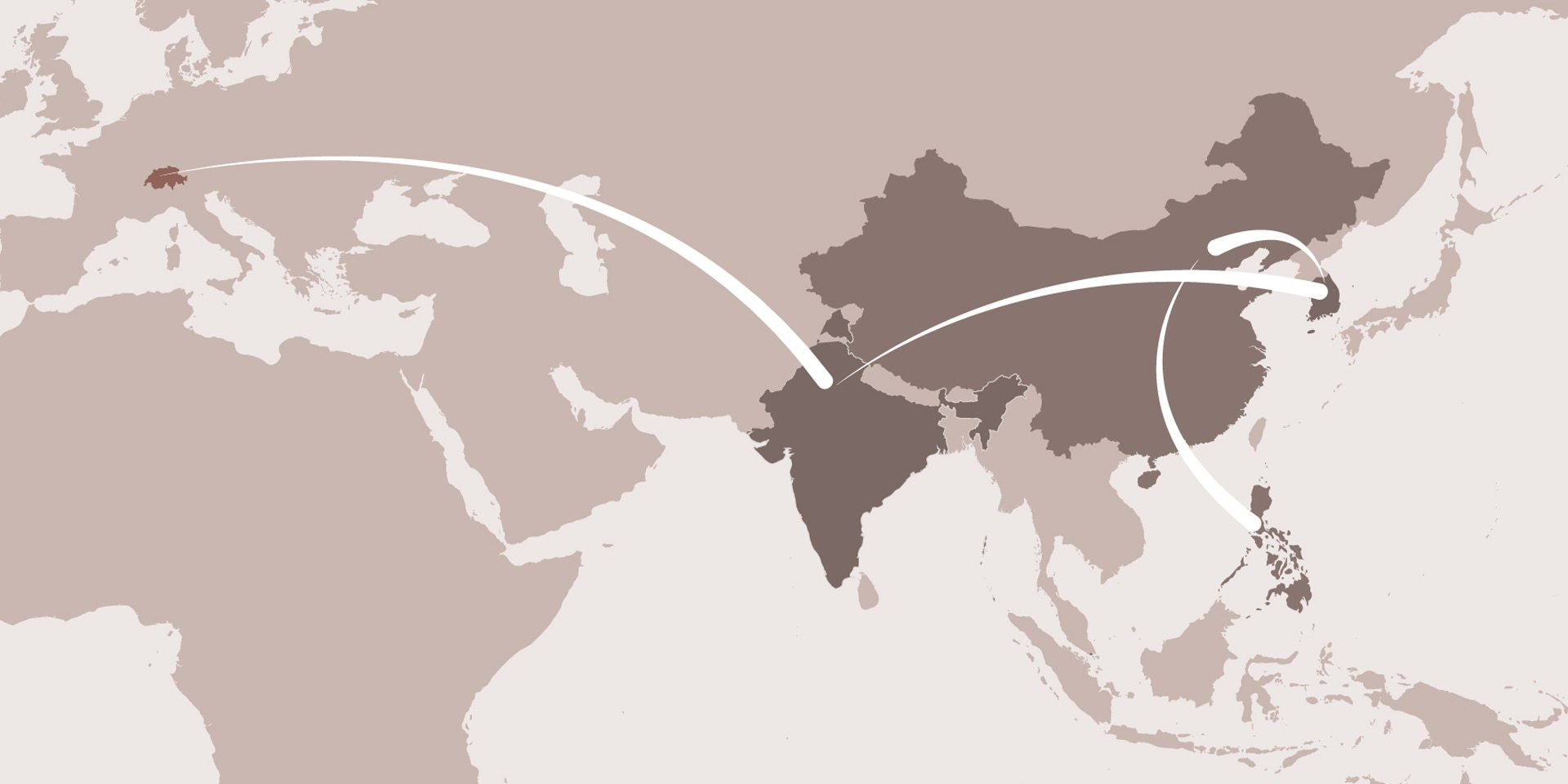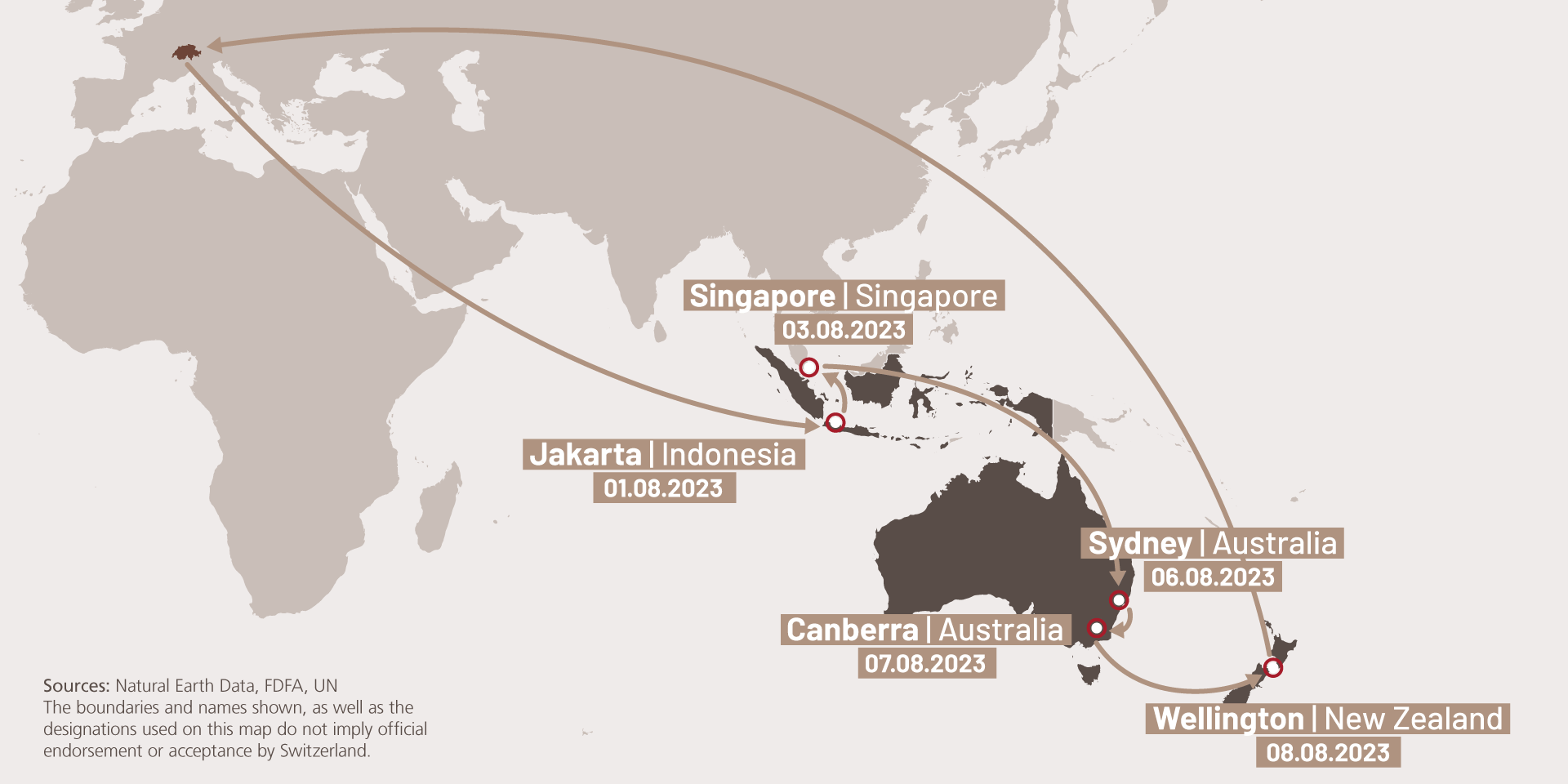Ignazio Cassis bridges economy and cooperation in Central Asia
Tajikistan and Kyrgyzstan are the two stops on Federal Councillor Ignazio Cassis' trip to Central Asia from 1 to 4 July 2024. This visit is part of his participation in a meeting of Switzerland's voting group within the Bretton Woods institutions, also attended by Federal Councillor Karin Keller-Sutter. This article sheds light on Switzerland's relations with these two Central Asian nations.
Federal Councillor Ignazio Cassis' visit to Central Asia includes several bilateral meetings.
At the end of 2023, 22 Swiss nationals lived in Tajikistan and 52 in Kyrgyzstan. Despite these modest figures, Switzerland maintains robust bilateral relations with both countries and the region overall. The fact that Federal Department of Foreign Affairs (FDFA) head Cassis' current trip is coming on top of his July 2023 visits to Kazakhstan and Uzbekistan is an illustration of this.
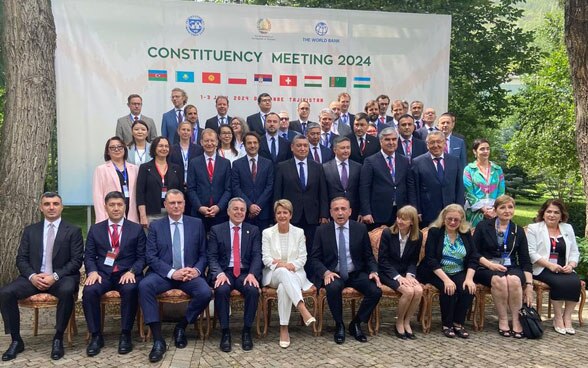
But there are two key areas that really showcase the extent to which Swiss–Central Asian relations are thriving. The first one is global economic issues. Tajikistan and Kyrgyzstan are part of Switzerland's voting group in the Bretton Woods institutions, which encompass the International Monetary Fund (IMF) and World Bank (see box below).
And a meeting of this group in Tajikistan on 2 July 2024 is part of why Cassis is headed to the region. Federal Councillor Keller-Sutter will also join the meeting, discussing global economic challenges, digitalisation, and how to make the workings of economies sustainable. Besides Tajikistan and Kyrgyzstan, the voting group includes Azerbaijan, Kazakhstan, Poland, Serbia, Turkmenistan, and Uzbekistan.
Water diplomacy
Water is the second key area of Swiss–Central Asian relations. Switzerland's Blue Peace initiative, launched in 2014, focuses on cross-border water management. Project-based, the initiative interweaves water diplomacy and development cooperation. In the face of growing competition for water resources, it brings together nations with common water sources to foster peaceful and sustainable resource-sharing.
Tajikistan and Kyrgyzstan, along with Turkmenistan, Uzbekistan, and Kazakhstan, share several water basins and legacy infrastructure. Blue Peace has established a high-level dialogue platform following two Swiss-facilitated ministerial and parliamentary meetings. This platform enables exchanges on joint priorities such as hydrometric data sharing, natural disaster prevention, investment in joint infrastructure, and water analysis methods.
Tajikistan
Switzerland has maintained diplomatic relations with Tajikistan since 1992, opening a Swiss cooperation office in Dushanbe in 1998. The Tajik leg of Cassis' trip will see him meeting with President Emomali Rahmon and Foreign Minister Sirojiddin Muhriddin.
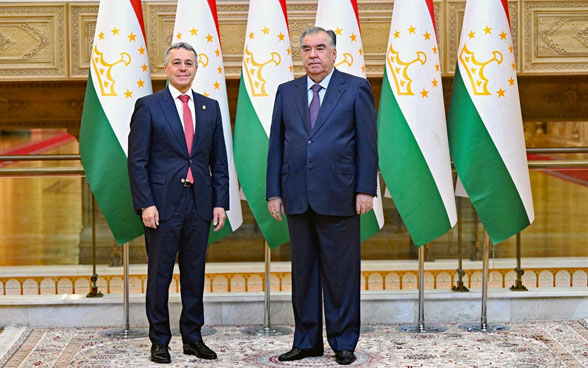
Switzerland is playing an active role in the country's digitalisation-related reforms through Swiss cooperation programmes. For example, Switzerland has been supporting the Tajik ministry of justice in digitalising civil status services through a project called Civil Status Reform. This includes measures such as simplifying services, building the capacities of staff members, and rolling out a reliable electronic system for recording and archiving civil status information. With funding totalling CHF 15 million, the project aims to bring essential documents to the population faster, better and with higher quality. It illustrates Switzerland's significant role in the country's digitalisation.
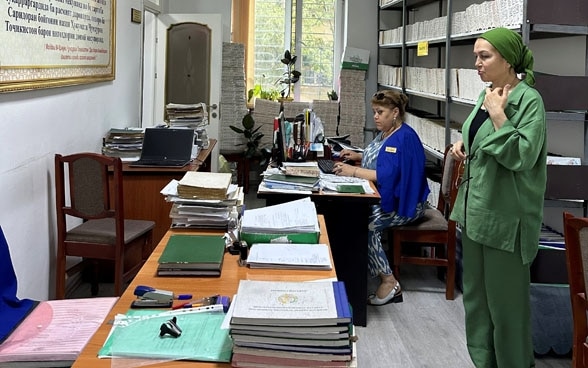
Kyrgyzstan: 30 years of cooperation
This year marks thirty years of Swiss–Kyrgyzstan cooperation. Since 1994, Switzerland's engagement in the country has focused on areas including sustainable and resilient economic growth, a green transformation of the energy sector, and access to quality municipal services (to the tune of over CHF 500 million). In 2012, Switzerland opened an embassy in Bishkek.
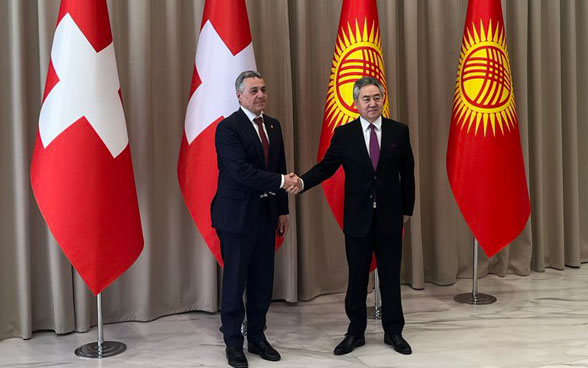
Ignazio Cassis' visit to the country will include bilateral talks with his counterpart Zheenbek Kulubaev and with President Sadyr Japarov. Cassis will also meet with Swiss nationals living in Kyrgyzstan and with embassy staff at an event organised to celebrate Swiss National Day.

The Bretton Woods institutions at a glance
The Bretton Woods institutions comprise the International Monetary Fund (IMF) and the World Bank. They were created following an agreement signed at the end of a conference held in Bretton Woods, US, in 1944.
Today, the specific aims of the two entities are as follows:
- IMF: to promote international monetary cooperation, encourage the expansion of trade and economic growth, and ensure the implementation of economic policies conducive to prosperity
- World Bank: through its five institutions, to work to reduce poverty and increase shared prosperity on a liveable planet.
Celebrating their 80th anniversary this year, the Bretton Woods institutions' World Bank currently has 189 member countries while its IMF has 190.
Switzerland has been a member of the institutions since 1992. It heads a voting group and sits on the boards of the IMF and the World Bank.


